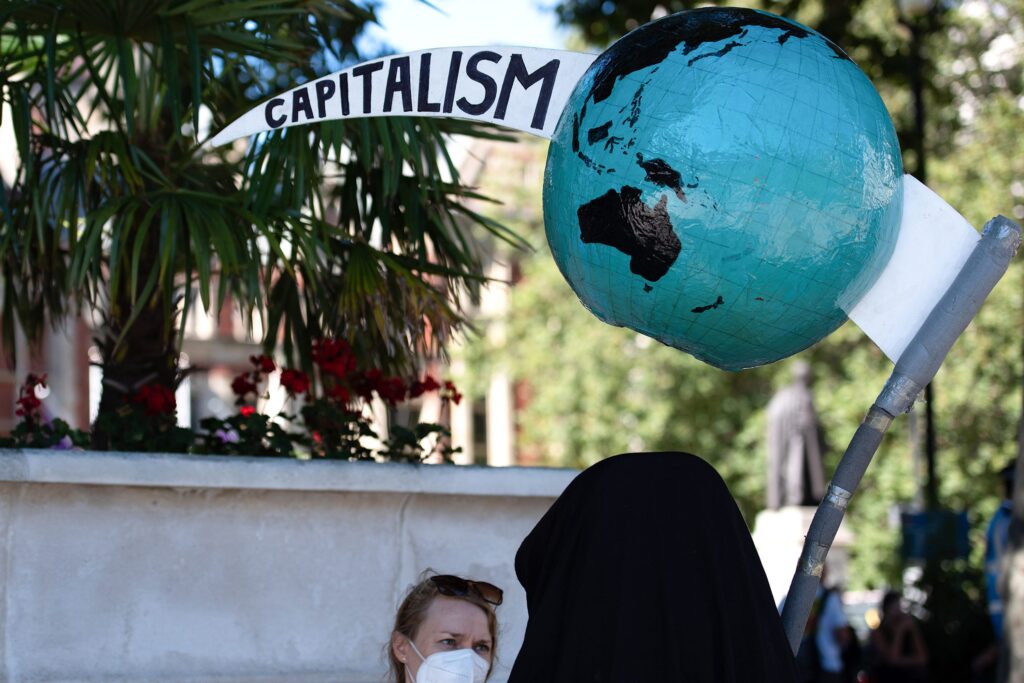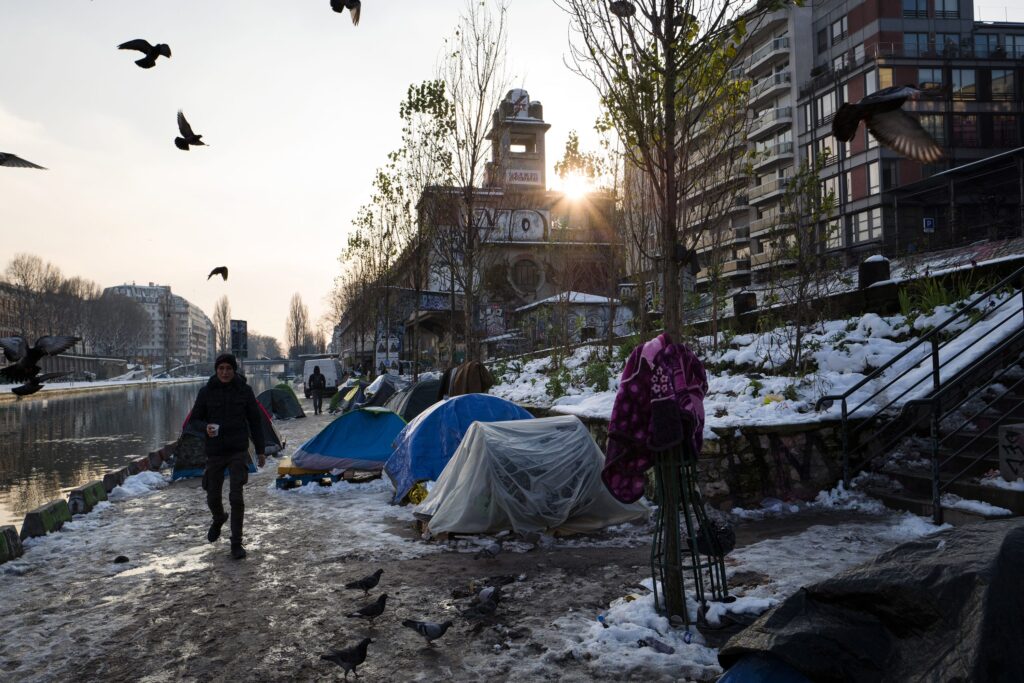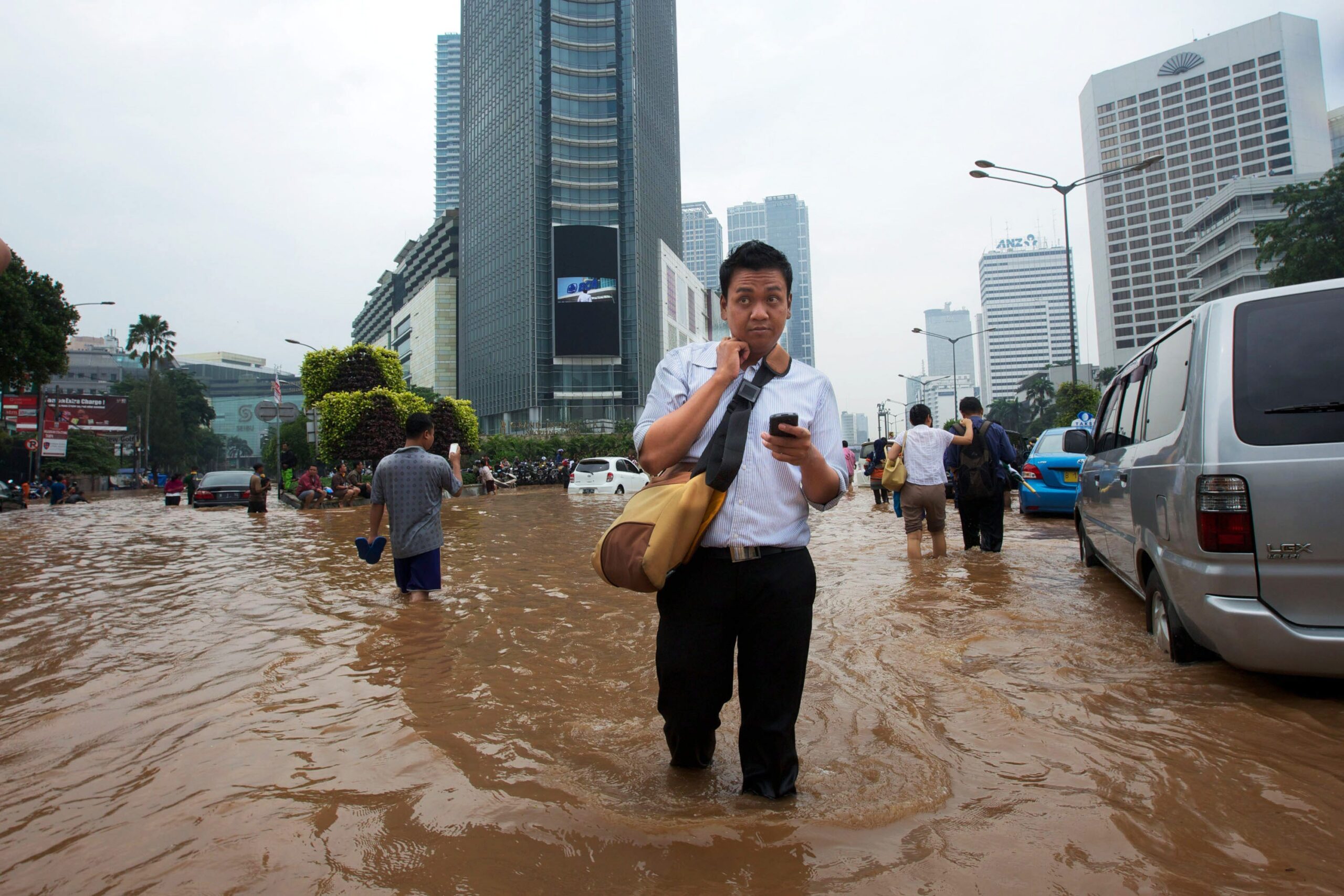We are thrilled to feature in The Ideas Letter 16 the trenchant prose of Oliver Eagleton, an editor at Sidecar, who dissects the intra-left debate around degrowth. Eagleton makes clear that the contest is indeed over development and its limits. But there are greater stakes as well. We also spotlight an illuminating interview of the superstar political economist Branko Milanović by the equally esteemed Mexican journalist Carlos Bravo Regidor, on Milanović’s fave themes: inequality and capitalism. Read and learn!
For our curated links, we begin with a piece Ivan Krastev and I wrote for Foreign Policy. Can democracy recover a productive tension between a near future and a distant and utopian future despite the raft of colossal problems that require immediate attention today? This is followed by a look at democracy’s antipode, authoritarianism, and a fascinating (and necessary) podcast with Northwestern political scientist Ida Zing that helps to reconceptualize China’s behavior. Two other podcasts discuss the contradictions of climate politics. The final one will challenge your assumptions about the environment as well.
Our musical selection this issue was recommended by a special gentleman, now residing in Iowa, Felix Benardo. Felix turned me on to this vital mid-1970s Zambian band, Amanaz (the genre is Zamrock). Enjoy “Sunday Morning” from Amanaz’s sole recording: Africa. The name Amanaz, you should know, is an acronym for “Ask Me About Nice Artistes in Zambia.” Thank you, Felix!
—Leonard Benardo, senior vice president at the Open Society Foundations
Degrowth from the Left

Oliver Eagleton
The Ideas Letter
Essay
The climate crisis has polarized environmentalist Marxists, between degrowthers, who advocate reducing production and consumption to respect ecological limits, and eco-modernists, who believe technological advancements can sustain a socialist society. The two camps accuse each other of impractical idealism, but these debates do reflect a broader utopian sensibility on the left, in that “they express a disruptive desire to transcend the present, not by winning practical reforms, but by sundering society’s ideological fabric.”
“Utopias tend to idealize either the social or the natural, prioritizing one of these elements and downgrading the other. Ecomodernists assume that the productive forces can be divested of their capitalist character and used for collective ends. Some degrowthers, conversely, accept the notion that nature’s preexisting ‘balance’ can be restored after the cesura of capitalism. Both positions require a significant leap of faith. The first involves betting on the miraculous powers of technologies that do not currently exist. The second skirts over the material or technological infrastructure that must be harnessed to achieve a ‘steady state’. Each expresses a belief, which cannot be verified empirically, that one side of the country/city opposition offers salvation from the other. Their respective agents of change reflect this dichotomy: ecomodernists pin their hopes on the urban proletariat, particularly in the Global North, while degrowthers tend to foreground peasant and indigenous movements outside the imperial core.”
Inequality and Capitalism
A conversation with Branko Milanović

Carlos Bravo Regidor
The Ideas Letter
Essay
Economist Branko Milanović discusses his most recent book, Visions of Inequality, with journalist Carlos Bravo Regidor, who characterizes it as a history of economic thought about inequality, with reinterpretations of influential economists on income distribution: François Quesnay, David Ricardo, Adam Smith, Karl Marx, Vilfredo Pareto, and Simon Kuznets. “There is a plot beyond the individual economists I look at, and it is about the historical evolution of what we consider to be the main cleavages, or the main drivers, of income inequality,” Milanović explains. He warns that the structural conditions of inequality today are different, meaning that the problem cannot be tackled by returning to past models: “So, we need to come up with new or alternative solutions.”
“I emphasize ‘high’ inequality because not every kind of inequality has the same consequences. Inequality-versus-equality is not a binary proposition, with equality being good and inequality, bad. Inequality is like temperature; it is a gradual thing. Temperature is zero degrees and it is 100 degrees, as well as all the degrees in between. Likewise with inequality. On the one hand, very low inequality is problematic because then people have little incentive to study or work hard, or to take risks. On the other hand, very high inequality has all sorts of negative impacts: social instability, lack of investment, distrust in government, lower economic growth. So, again, the problem is high inequality, not inequality per se. What is the ‘ideal’ level of inequality? We can’t put an exact number on it, but somewhere between low inequality and high inequality there is inequality that delivers the right incentives without breaking society into two.”
Democracy Has Run Out of Future
Ivan Krastev and Leonard Benardo
Foreign Policy
Book review
If a sense of doom seems to have descended on the entire political spectrum, that’s because all camps share an apocalyptic imagination. “Democratic politics in the West has turned into a clash between two extinction rebellions and two nostalgias,” write Leonard Benardo and Ivan Krastev. The left believes climate change will destroy life on the planet, while the right believes the “great replacement” will destroy life as we value it. Jonathan White’s In the Long Run: The Future as a Political Idea is of particular relevance, the authors argue in this review of the book. He “offers an original reading of the current crisis of democracy by defining it as a temporal regime and arguing that an ‘open future,’ one that is not predetermined but is shaped by human agency, is a precondition for the successful functioning of democratic regimes.”
“White’s most important suggestion is also the least inspirational. In his view, the only way to escape the trap of a politics of emergency is to confront head-on the apocalyptic appeal of both the climate left and the great replacement right. Alexis de Tocqueville was one of the first to assert that the discourse of crisis is the native language of any genuine democracy. Democratic politics, he claimed, need drama. … Democracy thus operates by framing the normal as catastrophic, while promising that all crises are surmountable, thus framing catastrophe as normal. Democratic politics functions as a nationwide therapy session where voters are confronted with their worst nightmares—a new war, demographic collapse, economic crisis, environmental horror—but are convinced they have the power to avert the devastation. In other words, democratic politics is impossible without a persistent oscillation between excessive overdramatization and trivialization of the problems we face. Elections lose their cogency when they fail to convince us that we’re confronting an unprecedented crisis and that we have it in our power to avert it.”
Political Scientist Iza Ding on Authoritarianism, Legitimacy, and “Resilience”
Iza Ding
Sinica
Podcast
Iza Ding, an associate professor of political science at Northwestern University and the author of The Performative State: Public Scrutiny and Environmental Governance in China, discusses how American academia has framed and problematized authoritarianism, especially when it comes to China. This approach, which Ding dubs authoritarian teleology, interprets all actions of authoritarian regimes as strategies solely aimed at maintaining power, and as actions whose actual causes and complexities those regimes often overlook. This perspective is problematic, she argues, because it oversimplifies the regimes’ motivations and incorrectly assumes they are driven by a constant strategic effort to survive, ignoring the often inconsistent and non-strategic nature of their decision-making.
“The normative assumption is that because authoritarian regimes do bad things, they must be hated by their citizens who can’t wait to overthrow the regime. And that’s why the regime’s mere existence is called ‘survival’ and why this survival is puzzling. And I have to emphasize the word ‘survival’ here again, because it is a common word in the literature. And the things authoritarian regimes do are often called ‘survival strategies’ or ‘survival tactics.’ Usually, we don’t bother to show that the behavior, the actual behavior, is an actual strategy or a tactic. We just assume that. So, repression is a survival tactic, but sometimes recycling is also a survival tactic. So, assuming everything the authoritarian government does under this bundle of survival tactics is basically authoritarian teleology at work.”
The Price of Transition with Brett Christophers
The Essential Podcast
Podcast
Renewable energy has become cheaper than fossil fuels in the past decade, and yet large-scale adoption has stalled. Although renewables like wind and solar are now cost-effective, energy production from coal and natural gas has increased. Market-driven solutions have limitations. Relying solely on price mechanisms cannot drive a significant energy transition.
“My argument is that the key thing to think about is when thinking about whether renewables development takes place or not … is to look at profitability. The core argument of the book is that renewables development is going slower than we need it to globally because the business of developing and then owning and operating renewables facilities, and selling the activity that they generate … is simply not an attractive and stable enough proposition in profitability terms, in order for that development to occur. … My argument is that the economics is still the problem.”
Further Reading
Antimarket
William Davies, London Review of Books
Also exploring Christophers’ arguments: “The appeal of fossil fuels, from the vantage point of the ‘antimarket’, is that they continue to offer the kinds of monopoly rent that the far more competitive, more marketised industry of renewables does not.”
Further Reading
The Extracted Earth
Thea Riofrancos, Granta
“Extractivism is the modality through which capitalism is lived in the periphery. I’m riffing on Stuart Hall’s analysis of class and race. It is through mines that the places peripheral to the centers of finance and industry became incorporated into capitalism. Entire societies are shaped by the fact that the extraction of materials is the fundamental economic basis of their economies, and therefore shapes everything from ideology to civil society, from labor relations to subjectivity. And the implications are not just domestic; extractivism reinforces these countries’ position in the world system. Indeed, one of the factors that defines being part of the Global South is being a net provider of raw materials to the global economy.”
An Ethics of Wild Mind
An Interview with David Hinton
Emergence Magazine Podcast
Podcast
In this conversation, the poet, translator, and author David Hinton calls for a radical rethinking of the relation between the mind and land, a rewilding of our consciousness. “So this is the idea of wild mind—consciousness as wild, just like Earth is wild. We think of Earth as nature or wild, but the idea is incorporating consciousness into that.” Tracing the material shifts in human lives and the accompanying transformations of consciousness that distanced us from nature, he draws on Tao and Ch’an Buddhist philosophy to help us navigate the sixth extinction with an ethics tempered by love.
“Most environmental books now are about practical technological innovation or social changes that have to happen. My argument is that’s not going to work. That’s not going to happen. It requires a transformation in our assumptions about the nature of what we are and what the world is. Otherwise, that instrumental and exploitative relation will remain. Even if some people want to preserve a piece of land—that’s how they want to use it—other people want to frack natural gas out of it—that’s how they want to use it. Because you’re sharing the assumption that the piece of land is something to use, then it’s just a disagreement. But if there were an assumption that that land, the animals on it—their self-realization is equally important to ours, then the whole conversation changes dramatically.”
